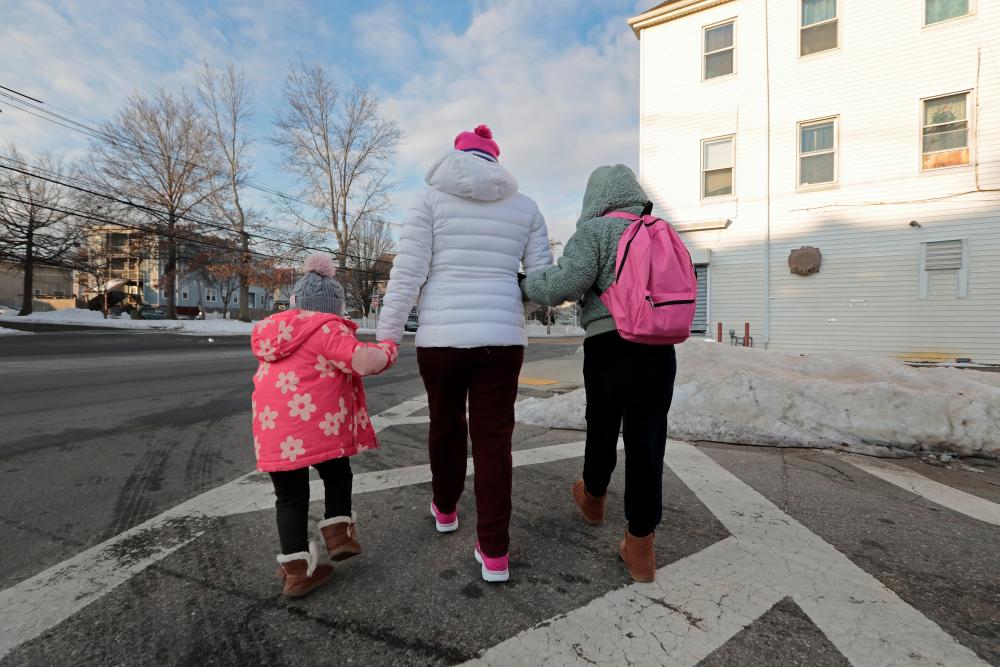The Trump administration has been handed a double defeat by judges in immigration cases, barring the executive branch from deporting a group of Guatemalan children and from slashing protections for many Venezuelans in the US.
A federal judge on Thursday ordered the administration to refrain from deporting Guatemalan unaccompanied immigrant children with active immigration cases while a legal challenge plays out.
Judge Timothy Kelly, a Trump appointee based in Washington DC, kept in place an earlier judicial block on the policy, sharply criticizing the administration’s unproven assertion that the children’s parents wanted them deported.
The administration attempted to deport 76 Guatemalan minors being held in US custody in a surprise move in the early morning on 31 August, sparking a lawsuit and emergency hearing that temporarily halted the move.
The Department of Justice lawyer Drew Ensign initially said that the children’s parents had requested they be returned home, but the department later withdrew that claim. Reuters published a Guatemalan government report saying that most parents of the roughly 600 Guatemalan children in US custody could not be contacted and of those who could, many did not want their children forced back to the country.
Kelly said the justice department’s explanation “crumbled like a house of cards” in light of that report.
The Department of Homeland Security (DHS) and the justice department did not immediately respond to requests for comment.
Kelly said some children were unexpectedly taken from their shelter beds in the middle of the night, driven to the airport and, in some cases, put on planes, leaving them worried and confused. At one shelter in McAllen, Texas, a young girl was so scared that she vomited, Kelly wrote, citing evidence submitted in the case.
Immigrant children who arrive at US borders without a parent or guardian are classified as unaccompanied and sent to federal government-run shelters until they can be placed with a family member or foster home, a process outlined in federal law.
Meanwhile, late on Wednesday, a federal appeals court rejected an attempt by the Trump administration to set aside a judge’s order holding that it unlawfully rolled back temporary protections from deportation granted to 600,000 Venezuelans living in the US.
A three-judge panel of the San Francisco-based ninth US circuit court of appeals declined to pause a judge’s 5 September ruling holding that the homeland security secretary, Kristi Noem, lacked the authority to end the program, known as temporary protected status or TPS.
“Vacating and terminating Venezuela’s TPS status threw the future of these Venezuelan citizens into disarray, and exposed them to a substantial risk of wrongful removal, separation from their families, and loss of employment,” the panel said.
The justice department has said that if a stay were denied, it might take the case to the US supreme court, which in May put on hold an earlier injunction Chen issued and cleared the way for the administration to end temporary protections for about 348,000 of the Venezuelans at issue.
Tricia McLaughlin, a spokesperson for the DHS, in a statement said the ninth circuit’s ruling “is nothing short of open defiance against the US Supreme Court”. The administration had contended the supreme court’s May decision meant Chen’s latest ruling had to be similarly paused.
Related: Thousands face deportation to danger as Trump targets temporary protections
“Luckily for us, and for all Americans, the Ninth Circuit is not the last stop,” McLaughlin said.
TPS is available to people whose home country has experienced a natural disaster, armed conflict or other extraordinary event. It provides eligible migrants with work authorization and temporary protection from deportation. The program was created in 1991 and extended under Joe Biden to cover about 600,000 Venezuelans and 521,000 Haitians. Noem reversed the extensions, saying they were no longer justified, prompting legal challenges.
Chen’s decision had also applied to 521,000 Haitians. The administration did not ask the ninth circuit to put that part of Chen’s ruling on hold as a second judge in New York had already blocked the revocation of the Haitians’ status.

